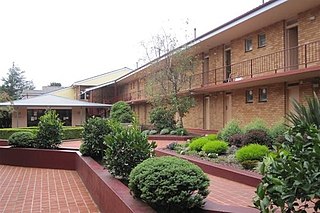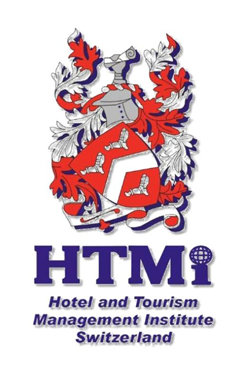Related Research Articles

The Qualifications and Curriculum Development Agency (QCDA) was a charity, and an executive non-departmental public body (NDPB) of the Department for Education. In England and Northern Ireland, the QCDA maintained and developed the National Curriculum and associated assessments, tests and examinations, advising the minister formerly known as the Secretary of State for Education on these matters.

The City and Guilds of London Institute is an educational organisation in the United Kingdom. Founded on 11 November 1878 by the City of London and 16 livery companies to develop a national system of technical education, the institute has been operating under royal charter, granted by Queen Victoria, since 1900. The Prince of Wales, later King Edward VII, was appointed the first president of the institute.

The Chartered Management Institute (CMI) is a professional institution for management based in the United Kingdom. It was founded as the British Institute of Management (BIM) in 1947 or 1948, merged with the Institution of Industrial Managers (IIM) in 1992 to form the Institute of Management (IM), and gained a royal charter, and its present name, in 2002.
The Imperial Society of Teachers of Dancing (ISTD) is an international dance teaching and examination board based in London, England. The registered educational charity, which was established on 25 July 1904 as the Imperial Society of Dance Teachers, provides training and examinations in a range of dance styles and certified dance teacher courses. The ISTD is recognised by the Qualifications and Curriculum Authority and the Council for Dance Education and Training and is also a member of the British Dance Council. It hosts various competitions in many different formats including Modern Ballroom, Latin American, Classical Ballet and Tap Dance as well as contemporary styles like Disco Freestyle.

LIBF is a for-profit provider of degrees and professional qualifications and a professional body. LIBF was spun off from the London Institute of Banking & Finance in 2023 and became a subsidiary of IU Group.
A national qualifications framework (NQF) is a formal system describing qualifications. 47 countries participating in the Bologna Process are committed to producing a national qualifications framework. Other countries not part of this process also have national qualifications frameworks.

The Institute of Financial Accountants (IFA) is a professional accountancy body representing and providing certification for financial accountants in the United Kingdom. The IFA is a full member of the International Federation of Accountants.

The European School of Economics (ESE) is a private college of higher education. It is accredited by ASIC, validated by Richmond, The American International University in London, and is an officially approved Learning Provider. ESE offers UK bachelor's degree, master's degree, MBA, and specialised short programmes at its centres in London, Rome, Milan, Florence, and Madrid.
The Chartered Institute of Logistics and Transport in the UK is the membership organisation for United Kingdom professionals involved in the movement of goods and people, and their associated supply chains. It is a National Council of CILT International.

The National Examination Board in Occupational Safety and Health is a UK-based examination board offering qualifications in health, safety, environment and wellbeing management.
William Angliss Institute of TAFE is a TAFE institute located in the Melbourne central business district, Victoria, Australia, providing training and vocational education in Hospitality, Tourism and Culinary Arts. It is the oldest and largest provider of hospitality training in Victoria, with the capacity to train up to 1400 chefs and pâtissiers a year.

NCC Education Ltd. is a private provider and awarding body of English education. The company provides students with the opportunity to earn internationally recognized British qualifications by studying at one of its Accredited Partner Centres, either through the classroom or online.

The Blue Mountains International Hotel Management School (BMIHMS) is an Australian hotel management training school affiliated with the private, for-profit Torrens University Australia. The school maintains campuses in Leura, Melbourne, Sydney, and Adelaide of Australia, as well as an overseas campus in Suzhou, China.

The British Safety Council, a registered charity founded by James Tye in 1957, is one of the world's leading health and safety organisations alongside the likes of Institution of Occupational Safety and Health and International Institute of Risk & Safety Management.

HTMi, Hotel and Tourism Management Institute Switzerland is a private educational institute, that offers undergraduate and postgraduate academic degrees. The Institute provides hospitality management development courses and has its campus in Sörenberg, Switzerland. Each semester the Institute has approximately 200 students from more than 35 nationalities, of which a similar number of additional students will be concurrently undertaking work placements. The Institute is organised into six centres:
NCFE is an awarding organisation and registered educational charity providing qualifications in England, Wales and Northern Ireland. NCFE is regulated by Ofqual in England, and recognised by Qualifications Wales and the Council for the Curriculum, Examinations & Assessment in Northern Ireland.
The British Wheel of Yoga was set up in 1965 by Wilfred Clark as a co-ordinating body for yoga groups throughout Britain that welcomed all schools of thought.
OCN London is a UK national not for profit awarding body organisation that creates and awards qualifications. OCN London stands for Open College Network London Region, however it is popularly known as 'OCN London' in the UK. The awarding body collaborates in partnership with educators, training providers, charities and employers. They have been assisting numerous private and public organisations for over 25 years. The organisation focuses practical academic needs for non traditional learners and paves their way to higher education in the UK.
The hospitality industry in the United Kingdom is largely represented by the country's hotels, pubs, restaurants and leisure companies, and produces around 4% of UK GDP.
Yoga teacher training is the training of teachers of yoga as exercise, consisting mainly of the practice of yoga asanas, leading to certification. Such training is accredited by the Yoga Alliance in America, by the British Wheel of Yoga in the United Kingdom, and by the European Union of Yoga across Europe. The Yoga Alliance sets standards for 200-hour and 500-hour Recognized Yoga Teacher levels, which are accepted in America and other countries.
References
- ↑ "CTH appears in Ofqual's Register as one of the Awarding Organisations they recognise". Ofqual. Retrieved 2021-11-05.
- ↑ "CSR partners | CTH Awards". Confederation of Tourism and Hospitality. Retrieved 2024-08-31.